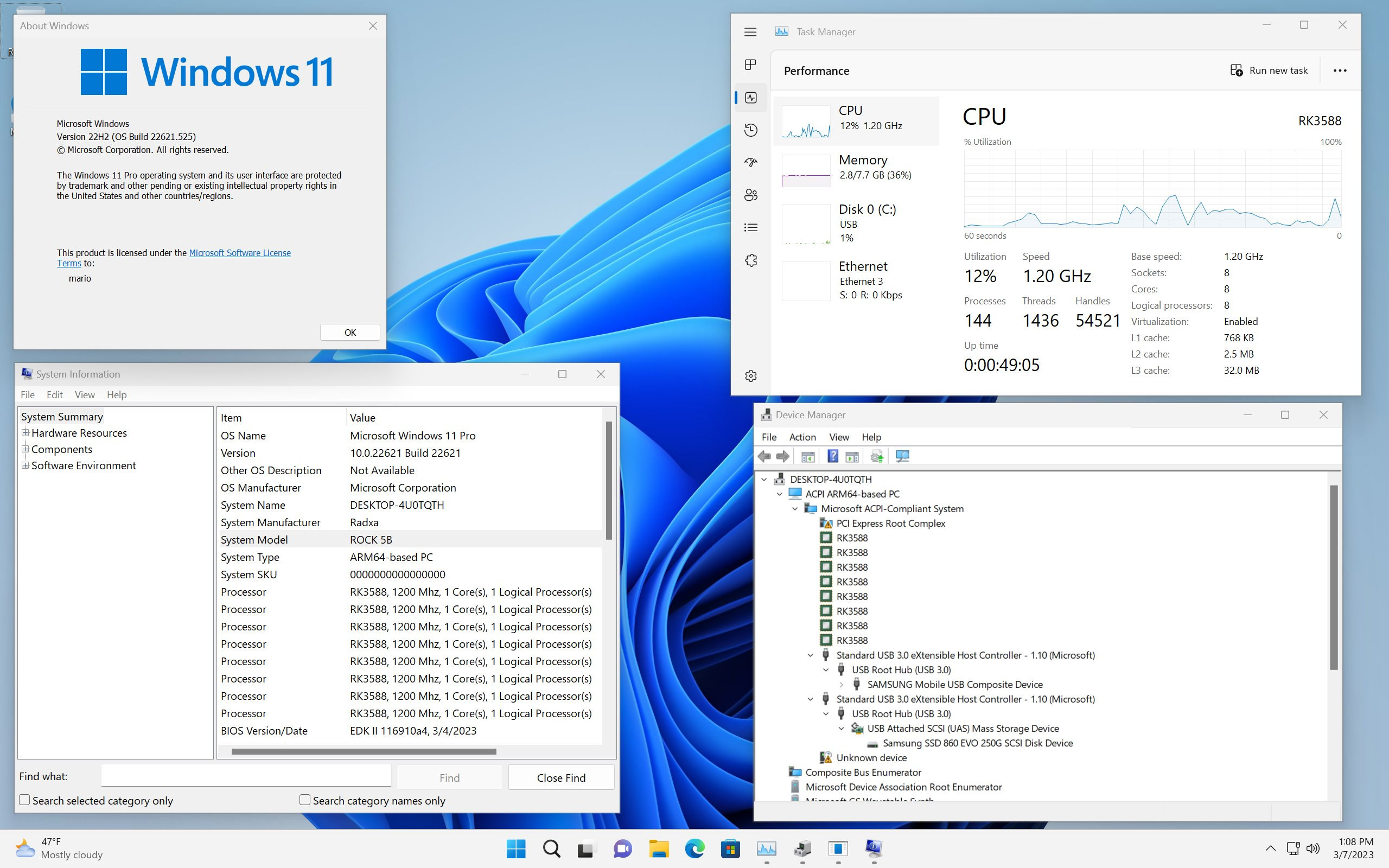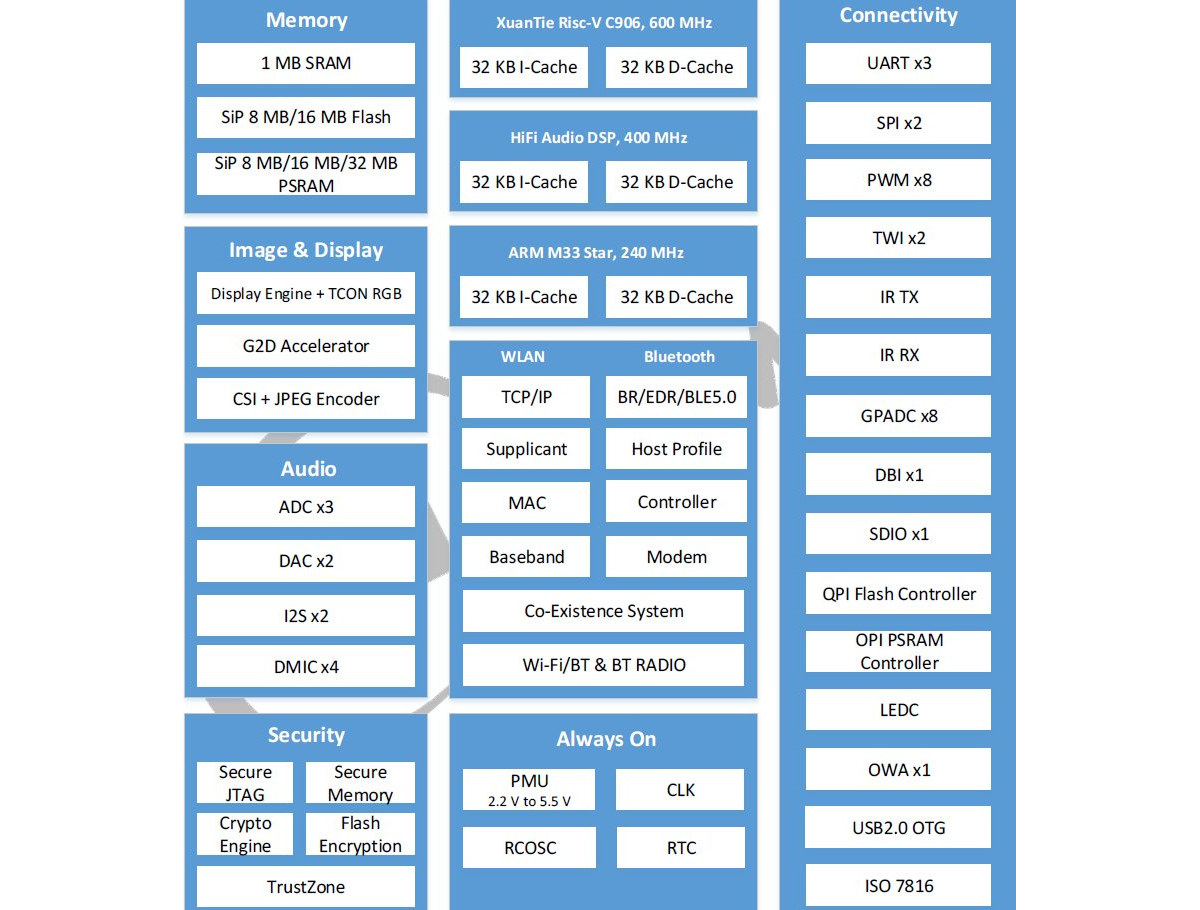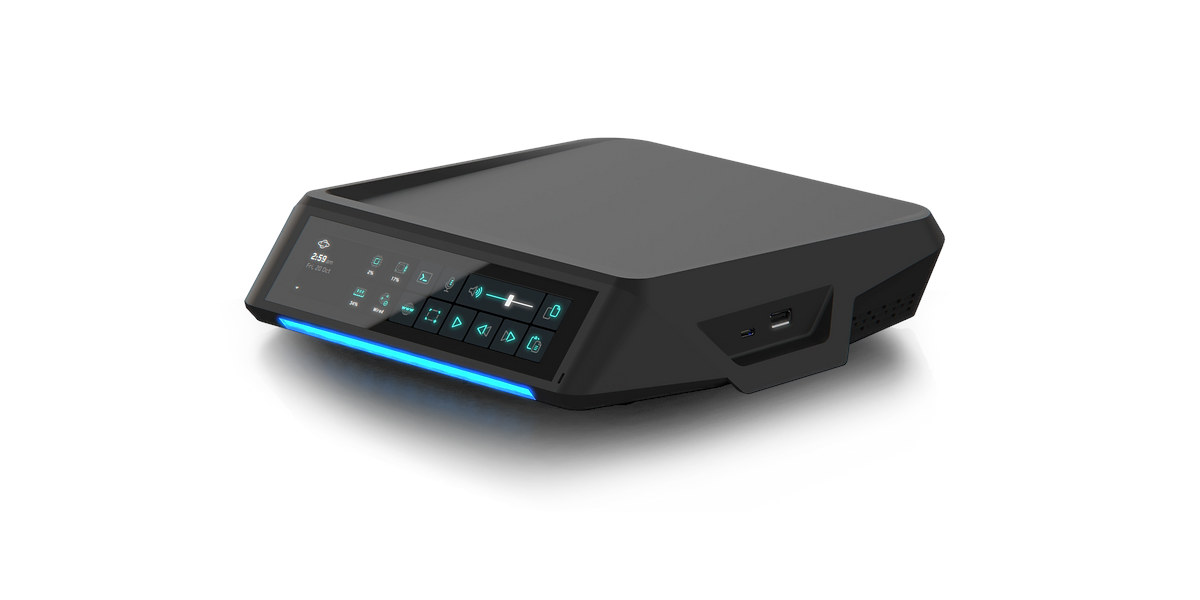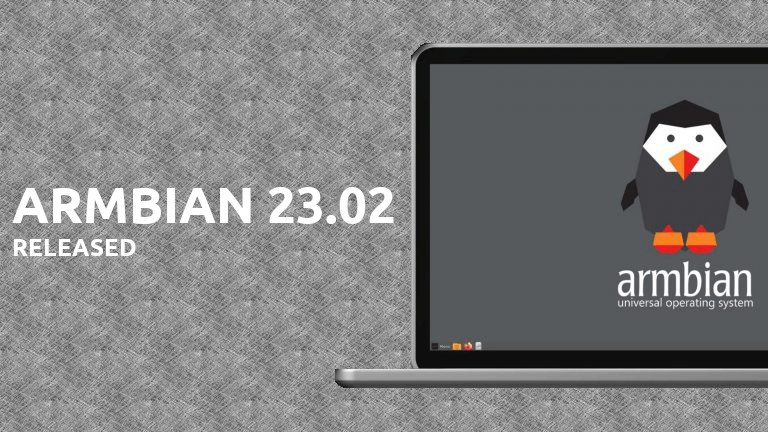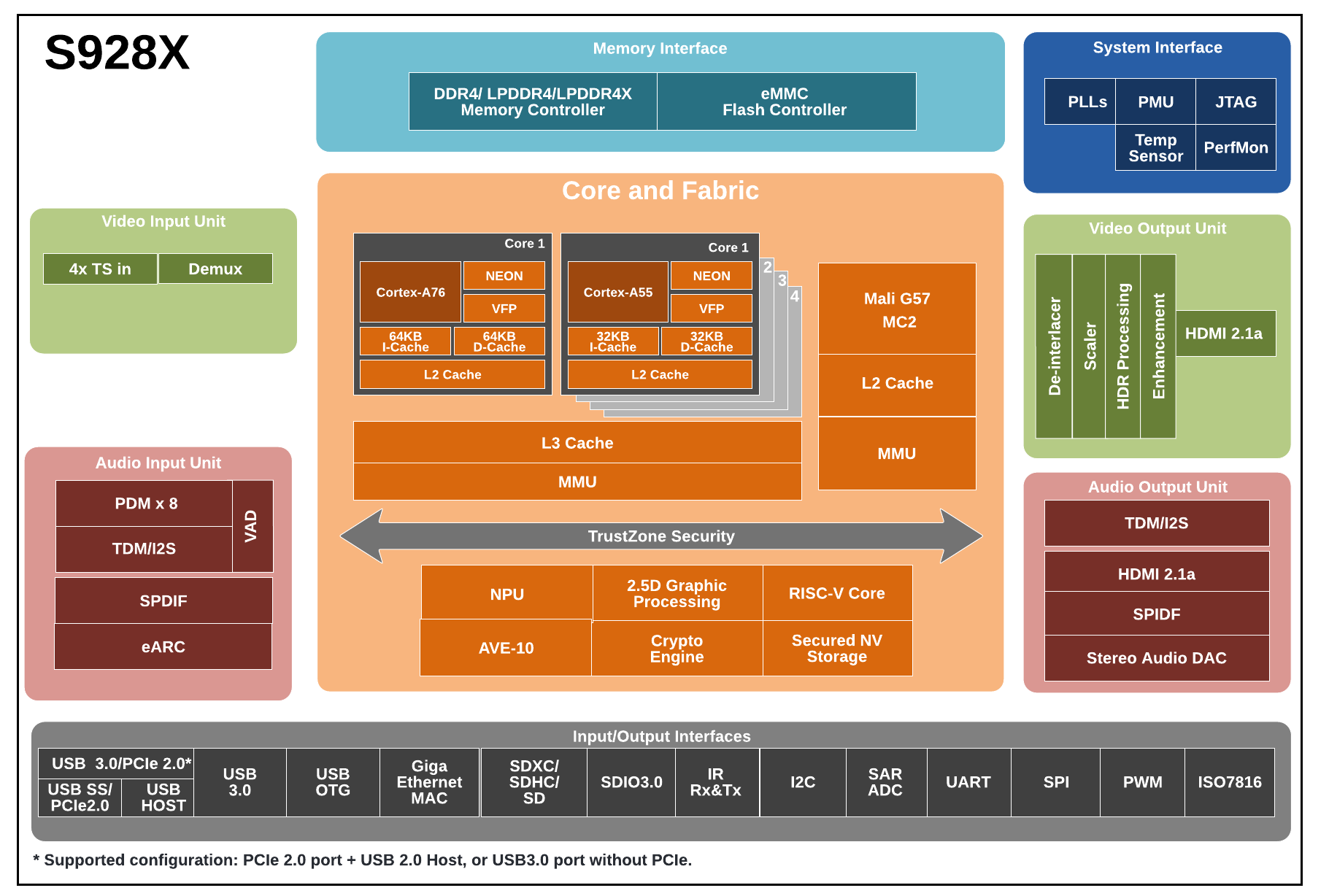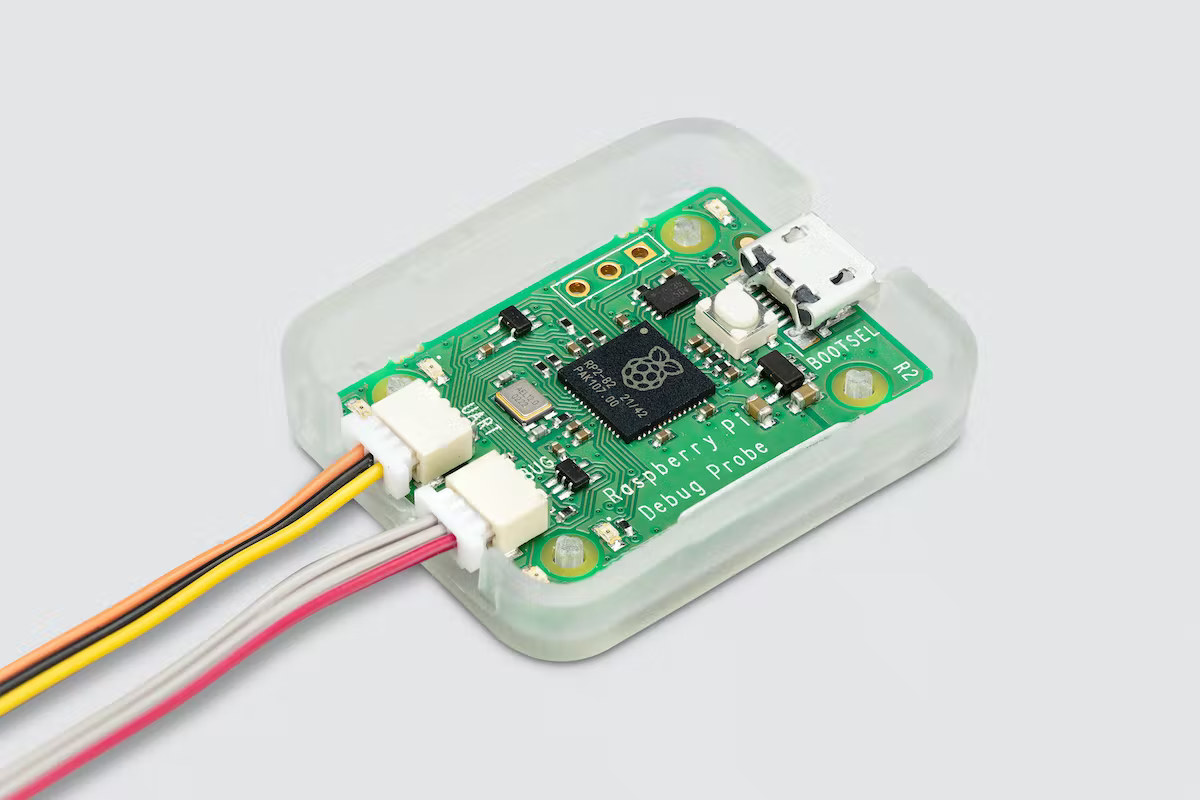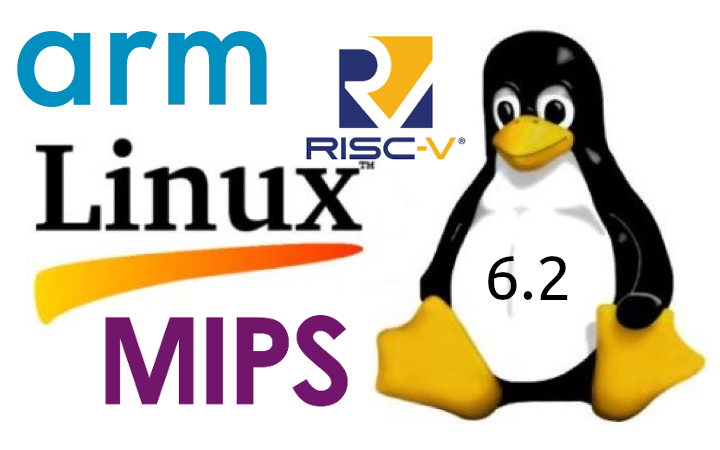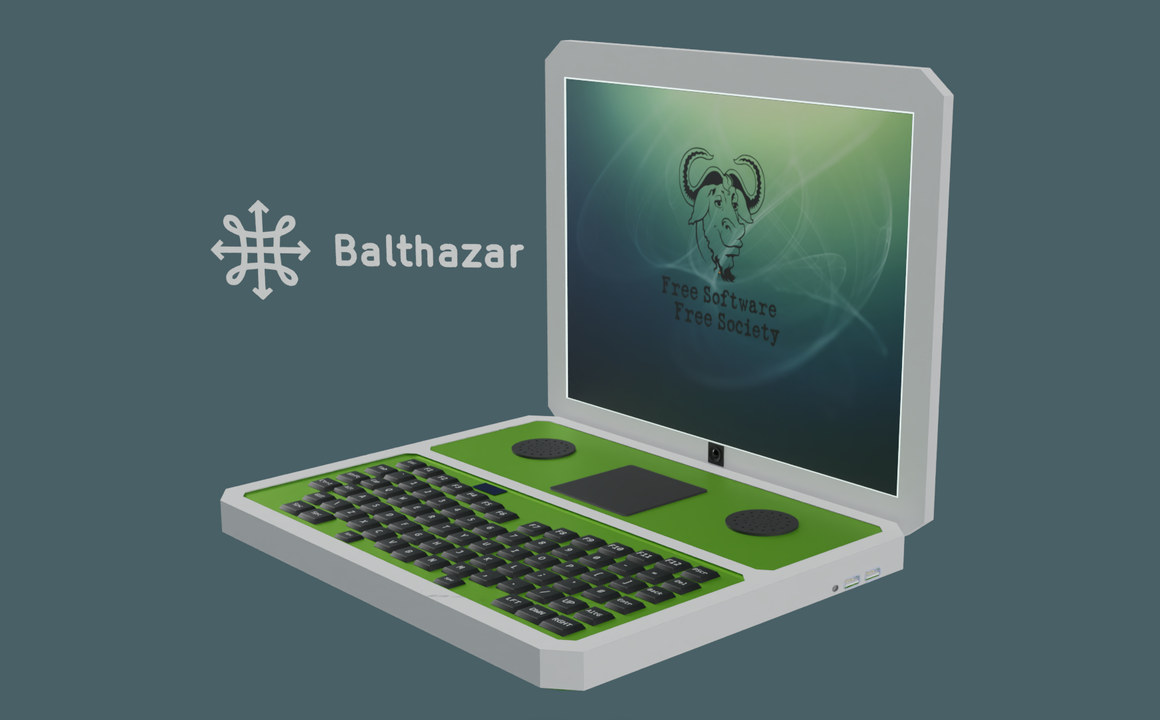Most people will probably want to run Linux on their Arm SBC, but Windows 11 could also be an option with the Rock 5B and other single board computers based on Rockchip RK3588 and other powerful Arm SoCs thanks to the Windows on Raspberry project. The project, also known as “Windows on R” is maintained by Mario Bălănică who recently tweeted a screenshot showing Windows 11 running on the Radxa ROCK 5B SBC powered by a Rockchip RK3588 Arm Cortex-A76A/A55 clocked at 1.2 GHz (instead of the usual 2.2/2.4 GHz), but with USB 2.0/3.0 and display interface apparently working just fine. PCIe appears to be detected, but not working. He also noted that virtualization worked out of the box unlike with Raspberry Pi 4 SBC showing Windows Subsystem for Linux (WSL 2) and PowerShell in the screenshot below. Virtualization also enabled running Android apps in Windows 11 Arm as shown […]
Allwinner R128 wireless SoC features 64-bit RISC-V core, Arm Cortex-M33 core, and HiFi 5 audio DSP
Allwinner is mostly known for its low-cost Arm processor running Android or Linux, but the Allwinner R128 is a wireless audio SoC with a C906 64-bit RISC-V application core, an Arm Cortex-M33 real-time time core, a HiFi 5 DSP, and built-in WiFi and Bluetooth connectivity. The SoC also comes with 1MB SRAM, up to 16MB flash, up to 32MB PSRAM, display and camera interfaces, support for microphone arrays, and plenty of I/Os that should make it suitable for smart speakers and other voice-controlled home appliances with or without display. Allwinner R128 specifications: Application core – Xuantie C906 64-bit RISC-V core clocked at 600 MHz. DSP – Cadence HiFi 5 audio DSP clocked at 400 MHz Communication core – Arm M33 Star (Cortex-M33 from Arm China?) core clocked at 240 MHz with Trustzone support Memory 1MB SRAM 8MB, 16MB, or 32MB PSRAM (SiP = System-in-Package) OPI PSRAM controller Storage QPI flash […]
PlanetPC XR1/XR2 Rockchip RK3568/RK3588 Mini PC comes with a touchscreen display for control (Crowdfunding)
PlanetPC XR1/XR2 are Arm Linux mini PCs based on Rockchip RK3568 or RK3588 processor respectively with a unique design featuring an integrated touchscreen display for control. Planet Computers has designed several unique computing devices over the years such as the Cosmo Communicator 2-in-1 smartphone and computer or Astro Slide 5G transformer smartphone, and the British company has now come up with a mini PC preloaded with Ubuntu with a touchscreen screen interface, dual 4K/8K video output, dual Gigabit Ethernet and more. PlanetPC XR1/XR2 specifications: SoC PlanetPC XR1 – Rockchip RK3568 quad-core Cortex-A55 processor up to 2.0 GHz with Arm Mali-G52 2EE, 0.8 TOPS NPU PlanetPC XR2 – Rockchip 3588 octa-core Cortex-A76/A55 processor up to 2.4 GHz with Arm Mali-G610 MP4 GPU, 6 TOPS NPU System Memory & Storage PlanetPC XR1 4GB LPDDR4 32GB eMMC flash Optional 512GB, 1TB, 2TB M.2 NVMe Optional up to 14TB SATA HDD or 2TB SATA […]
Armbian 23.02 out with Linux 6.1, DietPi 8.14 adds experimental RISC-V support
Two of the most popular projects providing images for Arm and RISC-V single board computers have released new updates with Armbian 23.02 adding Linux 6.1-based Debian and Ubuntu images, and DietPi 8.14 adding experimental RISC-V support for the StarFive VisionFive 2 SBC and new Arm boards. Armbian 23.02 Quoll Linux 6.1 is the latest LTS kernel, so Armbian is now providing Ubuntu 22.04 Jammy and Debian 11 Bullseye images based on Linux 6.1.y for boards that support it, as well as the first development images based on Debian 12 Bookworm and Ubuntu 23.04 Lunar. I could not find any new boards added in the changelog, but the release brings several improvements and bug fixes to some of the already supported SBCs including the Raspberry Pi 3, Orange Pi R1 Plus LTS, ROCK Pi S, ROCK Pi 4, NanoPi R2S, NanoPi NEO3, and Banana Pi BPI-M2 Pro. The announcement also highlights […]
Amlogic S928X specifications – A penta-core Arm Cortex-A76/A55 SoC with Mali-G57 GPU, 3.2 TOPS NPU
Amlogic S928X Cortex-A76/A55 will soon power some 8K TV boxes running Android TV from SDMC and others, and we now have detailed specifications as a “Quick Reference Manual” dropped in my inbox last night. While like most Amlogic processors, the S928X is designed for TV boxes, the penta-core SoC may end up in affordable yet powerful single board computers with features such as HDMI 2.1a, Gigabit Ethernet, PCIe 2.0 or USB 3.0. Amlogic S928X specifications: CPU sub-system 1x Arm Cortex-A76 core and 4x Arm Cortex-A55 cores in big.LITTLE configuration NEON and Crypto extensions Private L2 cache and unified system L3 cache Build-in RISC-V core for system control processing GPUs Arm Mali-G57 MC2 3D GPU with support for OpenGL ES 3.2, Vulkan 1.2, and OpenCL 2.0 2.5D graphics processor for scaling, alpha, rotation, and color space conversion operations VPU Amlogic Video Engine (AVE) with dedicated hardware decoders and encoders Decoding AV1 […]
Raspberry Pi Debug Probe eases bare metal development for $12
The Raspberry Pi Debug Probe is a USB serial adapter based on the Raspberry Pi RP2040 microcontroller and designed to debug the Raspberry Pi Pico, third-party RP2040 boards, and pretty much any Arm board through SWD and/or UART interfaces. The main advantage over a typical USB-to-serial adapter is the presence of a Serial Wire Debug (SWD) bridge used for bare metal code development and debugging through tools such as OpenOCD. The Raspberry Pi Debug Probe specifications: MCU – Raspberry Pi RP2040 dual-core Cortex-M0+ microcontroller @ 133 MHz with 264KB SRAM Storage – 2MB SPI flash (W25Q16JVUXIQ) Debug interfaces 3.3V Serial Wire Debug (SWD) 3-pin JST connector conforming to the Raspberry Pi Debug Connector Specification and compatible with the CMSIS-DAP standard 3.3V serial (UART) 3-pin JST connector USB – Micro USB port to connect to the host Misc BOOTSEL button for flashing firmware to the debug board Unpopulated 3-pin header with […]
Linux 6.2 release – Main changes, Arm, RISC-V, and MIPS architectures
Linux 6.2 has just been released with Linus Torvalds making the announcement on LKML as usual: So here we are, right on (the extended) schedule, with 6.2 out. Nothing unexpected happened last week, with just a random selection of small fixes spread all over, with nothing really standing out. The shortlog is tiny and appended below, you can scroll through it if you’re bored. Wed have a couple of small things that Thorsten was tracking on the regression side, but I wasn’t going to apply any last-minute patches that weren’t actively pushed by maintainers, so they will have to show up for stable. Nothing seemed even remotely worth trying to delay things for. And this obviously means that the 6.3 merge window will open tomorrow, and I already have 30+ pull requests queued up, which I really appreciate. I like how people have started to take the whole “ready for […]
Balthazar – An open-source hardware modular RISC-V, Arm, or FPGA laptop
The Balthazar Personal Computing Device (BPCD) is an open-source hardware 13.3-inch laptop with a RISC-V, Arm, or FPGA module and designed to be upgradable, expandable, and sustainable. The developers say the laptop is based on a few concepts inspired by the EOMA68 project. The EOMA68 is a CPU module based on the PCMCIA form factor, and an Allwinner A20 EOMA68 module was showcased in a prototype of the Rhombus Tech 15.6-inch Libre Laptop but I don’t think the project was ever manufactured. Balthazar laptop features: SoM with RISC-V, FPGA, or Arm Cortex-A7x processor plus memory and flash Storage – SATA SSD, eSATA connector, microSD card socket Display – 13.3-inch non-glare display Video Output – HDMI Audio – Speakers, detachable microphone array Camera – Detachable webcam Connectivity – Ethernet, WiFi USB – 2x USB 3.0 ports, Micro USB OTG port, Micro USB port User input Waterproof keyboard with an illuminated track-point […]


